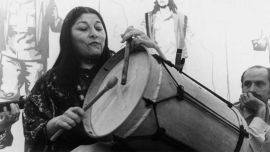The shocking story of young Fernando Báez Sosa, beaten to death by eight young rugby players, has opened old wounds and shed light on class, race and gender discrimination in Argentine society.
Eight friends, now age 21 to 23, are facing life in prison if convicted of the premeditated murder of Fernando Báez Sosa three years ago in the popular seaside resort of Villa Gesell.
The trial is under way in Dolores and has gripped the nation, as did the original murder that sparked protests in several cities. Except for runaway inflation (95 percent in 2022), there is hardly anything of more relevance in Argentina.
In the early hours of January 18, 2020, a fight broke out in a nightclub in Villa Gesell, a resort city popular with young people.
After those involved were evicted from the club, their quarrel continued in the street, but Báez Sosa, then 18, became isolated from his friends and surrounded by the eight defendants, who beat him so severely that he died of his injuries.
The attack was recorded on video via multiple sources, including from a mobile phone belonging to the aggressors, and corroborated in WhatsApp chat messages. There is also a wealth of DNA and blood evidence.
The trial opened three weeks ago. Some defendants have even denied hitting Báez Sosa. The matter of who, or what, exactly was responsible for the 18-year-old's death has inflamed social media debates.
"The question of class plays an important role in this case. Most of the rubgiers are from wealthy families in rural towns," in this case Zárate, 90 kilometres north of the capital, said sociologist Guillermo Levy, a professor at the universities of Buenos Aires and Avellaneda.
Prosecutors and plaintiffs have asked for life imprisonment for the eight defendants, as "co-authors of the crime of doubly aggravated homicide," which they say was premeditated.
Some have pointed the finger at rugby itself, and the culture that surrounds it.
"It's true that it is a cocktail of violence, racism, machismo, alcohol, etc. But I'm going to add the component of rugby training," Facundo Sassone, a sociologist at the University of San Martín who is also a junior rugby coach at Gimnasia y Esgrima de Ituzaingó, told AFP.
He said the "herd" mentality nurtured within a team environment had a role to play.
'Rugby values'
For all its positive publicity as a sport where respect and camaraderie are integral, rugby has a dark side in which gratuitous violence, and sometimes deeply inappropriate pranks, are commonplace and unquestioned.
"If we... say that it is a sport of values and friendship, why did it fail?" asked Sassone.
"Some issues can be misunderstood by rugby players and can generate situations of violence away from the pitch."
Some former professional players have spoken out on the matter.
Former Argentina captain Agustín Pichot was one of the people to hit out at his sport after meeting Báez Sosa's family in 2021.
He said rugby had "normalised bad things" by failing "to differentiate good from bad" in some of the practices that have developed within and around the sport.
Rugby by no means has a monopoly on violence – barely a year goes by without a death related to clashes between rival football fans, while drink-fuelled fights outside nightclubs are commonplace.
It is a minority sport in Argentina, whose popularity pales compared with football.
But it stands out because it is traditionally played and watched by a wealthy elite.
And that is why this case has captured the public's imagination in a way that violence between poor people would not, said sociologist and writer Alejandro Seselovsky.
The wealthy white "who kills, that's like 'a man bit a dog,' it's newsworthy," said Seselovsky.
Need to reflect
The racial aspect of this murder is also forcing Argentine society to confront an awkward truth it would rather brush under the carpet.
According to eyewitnesses, the defendants called Báez Sosa – whose parents, a bricklayer and a caregiver, are both Paraguayan immigrants – a "shitty black" ("¡Negro de mierda, mátenlo!") while beating him.
"You cannot escape the reference to Fernando's blackness in the assault," sociologist Sebastian Bruno, an immigration specialist, told AFP.
The "racism and classism" is obvious, said Bruno, although Levy points out that it "doesn't mean they wouldn't have attacked him if he weren't" Paraguayan.
In a country where the majority of the population is descended from white Europeans, mostly from Spain, Italy or Germany, the term "black" has been widely used to describe indigenous people or migrants from neighbouring countries viewed as inferior, said Bruno.
"We need to reflect on the society that produced this," said Levy.
Lawyer Hugo Tomei, defending the accused, who played rugby for a club in Zárate, has called for their "acquittal." He argued that the alleged "plan to kill" and who the perpetrators of the crime were "could not be proved."
"The reflection should be on the society that produces this, and not on whether they are crazy, whether they are psychopaths, because that is where we are wrong," Levy said.
The Buenos Aires Rugby Union organised workshops after the crime to re-educate young players who have been trained to act in groups and with violence in the face of aggression.


















Comments